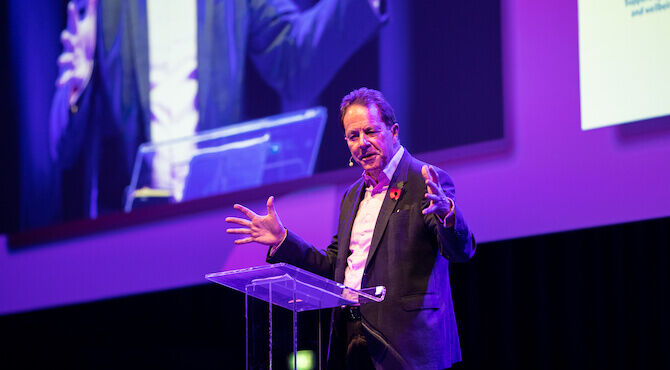CIPD ACE21: Rewriting the rule book
CIPD Chief Executive Peter Cheese kicked off the professional body for HR and people development’s annual November’s conference and exhibition with a call to carve out a human-centred approach to the new normal.

CIPD
Related reading
- Going for growth: people, purpose and collaboration
- Flexibility in mobility policy design
- Remote working: Are the positives of global mobility unravelling?
Driving through principles
“We as a profession are leading the charge on flexible working and meeting the expectations of a workforce that has clearly changed,” said Peter Cheese in his keynote speech. “2020 was different from 2021 because although we had number of things to deal with, we were given certain rules to adhere to.“Now as we emerge from the pandemic is a whole set of new variables,” he continued. “Not one size fits all and different sectors are adapting in different ways. Evolution is driven by great stimuli and our profession is in the eye of the storm.”Peter Cheese called for a principles-driven approach to dealing with the current challenges, accenting the need for collaboration. “This is a lot about learning and consultation and engagement because we are undoubtedly in a period of a lot of learning. It’s a critical time for leaders to acknowledge they don’t have all the answers, engage with and support people to understand how to adapt our organisations for the long-term goal.”Building the future world of work
Among the speakers at the two-day event, which attracted hundreds of delegates in-person and virtually from the UK and internationally, were Shadow Lord Chancellor and Justice Secretary, David Lammy MP, Katie O’Connor, Director of Regional Affairs at Pfizer, and Lynda Gratton, Professor of Management Practice at London Business School and Leader of the Future Work Consortium. Professor Gratton explained in Day One’s opening keynote why we are witnessing this great shift in employee expectation and how companies are managing it. “There is a shifting market context and increased competition for talent, as well as regional variations and accelerating use of technology. Everybody is experimenting and there is more change still to come. “The pandemic has been a real awakening for leaders,” continued Professor Gratton. “Leaders felt vulnerable and saw into lives of others. Employees are asking leaders to be empathetic and understand what it means to be me.” David Lammy’s Day Two opening keynote addressed racial equity at work. “If you think this agenda is going to go away, it is not. There are some really serious consequences of Brexit. “We will be a lot closer to the US than we have ever been. They are taking diversity really seriously. There will be a push coming. We will also strike a trade deal with India. They will demand visas and they will get them. Diversity is real and geopolitics will intensify. It’s why moving on from the business of equality to equity is really important.”An insightful panel on “Discrimination during the pandemic: how do we close the diversity gap in recruitment and retention?” showed how large employers like London Stock Exchange, Deloitte and Zurich are addressing the issues through a range of means. This includes a Centre of Global Inclusion and with data and analytics to really understand their workforce and support inclusion for all employees as part of their organisational culture.Cross-body guidance on hybrid working
Highlighting how collaboration could drive performance in organisations, the CIPD launched in December a new guide to fair and sustainable hybrid working as part of its membership and co-chair role of the Flexible Working Taskforce, which includes organisations like the British Chambers of Commerce, Chartered Management Institute, Working Families and the Institute of Directors. The CIPD has also joined the CBI and other organisations in asking the government to address skills shortages by revamping immigration policy. Responding to November’s official migration figures, which saw another decrease in net migration, Gerwyn Davies, the CIPD’s Senior Labour Market Adviser, said the figures reinforce the case for the introduction of a temporary immigration safety valve.“Employers also need to adopt the full range of tactics available to them to help recruit, develop and retain workers that go beyond just raising wages,” he added. “These include apprenticeships, a greater focus on line-management capability, more opportunities for existing employees to train and progress and a wider availability of flexible working arrangements.”Subscribe to Relocate Extra, our monthly newsletter, to get all the latest international assignments and global mobility news.Relocate’s new Global Mobility Toolkit provides free information, practical advice and support for HR, global mobility managers and global teams operating overseas.
 Access hundreds of global services and suppliers in our Online Directory
Access hundreds of global services and suppliers in our Online Directory
©2026 Re:locate magazine, published by Profile Locations, Spray Hill, Hastings Road, Lamberhurst, Kent TN3 8JB. All rights reserved. This publication (or any part thereof) may not be reproduced in any form without the prior written permission of Profile Locations. Profile Locations accepts no liability for the accuracy of the contents or any opinions expressed herein.































